Social Justice Is for Everyone … An Invitation in Essays to Join a Conversation (Book)
April 30th, 2021 | Published in Favorites, Social justice
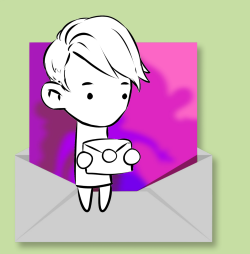 ‘Social Justice Is for Everyone … An Invitation in Essays to Join a Conversation’ (Beckwith 2021) raises key issues about racism, gender and sexuality, disability and refugee policy, abuse of workers, care of children and older people, death and euthanasia, health and mental health, economic inequality, and access to education.
‘Social Justice Is for Everyone … An Invitation in Essays to Join a Conversation’ (Beckwith 2021) raises key issues about racism, gender and sexuality, disability and refugee policy, abuse of workers, care of children and older people, death and euthanasia, health and mental health, economic inequality, and access to education.
Published by Busybird Publishing, the book is available from online retailers as a paperback (various prices from $28.60) and an eBook (Amazon charges $7.33).
It is also available free from the author, Dr Joan Beckwith, at joan.beckwith@outlook.com in return (while stocks last) for a donation to the Wurundjeri Cultural Heritage Aboriginal Council, on whose lands she lives and writes.
TO GET A FREE COPY of ‘Social Justice Is for Everyone … ‘ provide postal details to joan.beckwith@outlook.com.
TO DONATE TO WURUNDJERI (if/as-you-can-afford in lieu of paying for the book) go to www.wurundjeri.com.au/support/donate/
TO READ THE FIRST CHAPTER keep going.
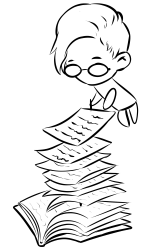
Social Justice Is for Everyone (Introductory chapter)
Two unrelated letters, neither intended for me, brought together this collection of essays. I had been writing about social justice for several years, and working in the area for many more. A friend suggested I should make my essays into a book, as a way of bringing the themes into focus, and sharing the research and insights. I wasn’t convinced at first, but the coincidence of the letters was hard to ignore.
The first letter, to ‘Bridgette’, was written by William P. Quigley (2007). Bridgette was interested in social justice law. Quigley responded at considerable length about social justice as work in progress, swimming against the tide, taking time for reflection, and the importance of hope.
The second letter was from E.B. White (1973) to Mr Nadeau, a man who had lost faith in humanity. It too spoke of the centrality of hope.
Both letters provided a sense of connection to people I have never met, and will never meet. I didn’t know of their letters until 2020, well after they were written. But they highlighted overlapping paths, and made me rethink my friend’s suggestion about collating my own essays, originally written for my 2020socialjustice website (Beckwith 2012b).
The essays in this collection are snapshots of my own journey, and an invitation to use them as springboards – for opening up conversations, putting a toe in the water, considering whether to become an activist, reflecting on existing activism, and thinking about the role of activism in contemporary society.
Way back, my journey started with my lived experience in 1950s and 1960s Australia. That starting point became less significant as I came to realise that all issues of social justice are interconnected. Any, and all, starting points can lead to a bigger picture. Any, and all, stages of involvement can provide opportunities for reflection. I hope these essays might be one such opportunity.
2020 seemed a long way off, in 2012, when 2020socialjustice first went live. It also seemed far enough in the future for substantial change to occur – for the better was my assumption.
It was timely, in 2020, for 2020socialjustice to meet 2020 hindsight.
Social justice as work in progress
‘Despite many decades practicing some form of social justice advocacy,’ William P.  Quigley wrote to Bridgette, ‘I still have much to learn [and] regularly make mistakes based on ignorance and lack of understanding … We all have much to learn … I hope some of these thoughts will help you; it helped me to write them down.’
Quigley wrote to Bridgette, ‘I still have much to learn [and] regularly make mistakes based on ignorance and lack of understanding … We all have much to learn … I hope some of these thoughts will help you; it helped me to write them down.’
I was reminded by these comments that the value of writing things down is partly to clarify our own thoughts and partly to invite others’ responses. It began to matter less whether my essays are what I would write now. Indeed, if they are, I mustn’t have learned much from the writing of them, or the feedback to them.
‘None of us have arrived,’ Quigley notes, even though things might be ‘better than before or better than those in other places.’
My own first webpost, written eight years before I discovered Quigley’s letter, expressed similar thoughts about the journey as an evolving and imperfect process.
‘Social justice,’ I wrote, ‘is work in progress towards social equity. A bit like hope, beauty and friendship, it may be most recognisable in its absence.
‘When I was growing up in Melbourne, the White Australia Policy was still in place; Indigenous Australians were not yet counted as citizens, and the Stolen Generations were in the process of being stolen; a woman’s place was in the home with dinner on the table at 6.00; homosexuality was diagnosed as mental illness; people with disabilities were warehoused in institutions; children were meant to be seen and not heard, and violence was meted out as discipline.
‘We have come a long way.
‘And, yet [I had to note in 2012], asylum seekers are still corralled in detention centres and retraumatised in adversarial processes; Indigenous Australians still have relatively low life expectancy and are over-represented in prisons; women are still sometimes described as asking for rape and violence, continue to be under-represented in high office, earn less than men, and do most of the unpaid domestic labour; LGBTQIA+ people still experience discrimination; workers are still exploited and abused; people with mental illness and disabilities are less likely to be institutionalised but may be living under bridges; children still have unequal access to education and too many are abused. Old people are increasingly warehoused for profit.
‘And that’s the shortlist, at a local level.
‘Looking beyond our own privileged borders, the effects of war, persecution, and poverty take issues of social justice to overwhelming proportions.
‘We have a long way to go,’ I concluded.
And yet too, between 2012, when I wrote that first webpost, and 2020, as I write this introduction, the Black Lives Matter movement built momentum in the US and gained traction in Australia; the Me Too movement spread across the world, breaking the silence about sexual abuse and harassment by powerful men, particularly in workplaces; marriage equality was legislated in Australia and elsewhere; and, young people built a global movement for climate action.
Then 2020 itself brought normal to its knees, as the COVID-19 pandemic emerged (WHO 2020): Lonely deaths, particularly of old people in aged care; many sick and isolated, others in quarantine; hospitals under pressure; large slabs of the year spent in lockdown; staggering numbers without jobs and fearful for the future; domestic violence escalating; parliament shut down; and public protest quashed.
Social justice is indeed a work in progress, sometimes going backwards 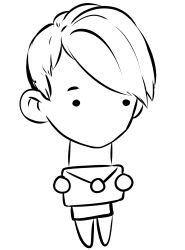 before regaining momentum. This collation is a snapshot, mainly in an Australian context, between 2012 and 2020, through my particular social justice lens.
before regaining momentum. This collation is a snapshot, mainly in an Australian context, between 2012 and 2020, through my particular social justice lens.
‘Never, ever, ever give up’, is the grounding motto of social justice work. Nobody can do it all. Everybody can do a bit. All contributions are part of a larger tapestry. There was a time before and there will be a time after. There will always be room for improvement, different ideas, critique of existing ideas, and multiple perspectives on the same events and material.
That’s what work in progress means.
Swimming against the tide
In his letter to Bridgette, Quigley raised the tension between law and justice.
‘Many come to law school,’ he wrote, ‘because they want in some way to help the elderly, children, people with disabilities, undernourished people around the world, victims of genocide, or victims of racism, economic injustice, religious persecution or gender discrimination.
‘Unfortunately, the experience of law school and the legal profession often dilute the commitment to social justice lawyering … Justice is a counter-cultural value in our legal profession … Unless you are [different], you cannot be a social justice lawyer … If you challenge the status quo, you better expect criticism from the people and organisations that are benefiting from the injustices you are seeking to reverse.’
Quigley’s description of the tension between social justice and law connected to similar thoughts of mine.
‘Feminism and psychology have an uneasy relationship,’ I wrote in the About section of my website, ‘and the tension has shaped the way I have worked as an academic, a counsellor in a university, a practitioner in community-based mental health and drug services, and with people seeking asylum in unwelcoming times.
‘The day one of my feminist mentors introduced me to a colleague as a feminist psychologist was a landmark, even though many mainstream psychologists would see such a description as an oxymoron.
‘Feminist theory started me thinking about relationships of power wherever they occur, given that gender intersects with other key dimensions (including race, class, and sexuality, for example), which in turn intersect with each other. Relationships of power underlie issues of social justice so that these, in turn, also form an intersecting web.
‘Social justice has provided the unifying theme across the personal, professional, and political domains of my life. I have worked towards it in theory and practice with students, clients, and colleagues, as well as closer to home; I have marched and rallied, signed petitions and collected signatures, lobbied, produced papers and given presentations.
‘I have also done at least my fair share of reinventing the wheel, tilting at windmills, and generally losing the plot. There have been times of low activity when family has taken precedence, and other times when I have needed to regroup. I have found, however, that the drive towards social justice has its own unpredictable pathway, so who knows what is yet to come.’
 A social justice psychologist, in other words, swims in the same direction as Quigley’s social justice lawyer – against the tide, often in uncharted waters. There are no formulae, and comforting certainties are in short supply.
A social justice psychologist, in other words, swims in the same direction as Quigley’s social justice lawyer – against the tide, often in uncharted waters. There are no formulae, and comforting certainties are in short supply.
Perhaps, I reasoned, if we invited the same kind of critique to our own social justice work that we apply to other fields, it might contribute to building on achievements and avoiding pitfalls. It might, in other words, make swimming against the tide more productive and less hazardous.
Reflecting on social justice work
Swimming against the tide is inherent to social justice work. It can also be strengthening, challenging and, at times, exhausting. Quigley’s advice to Bridgette about taking time for reflection is therefore sound.
Otherwise, he writes, ‘you will likely grow tired and start floating along and end up going downstream with the rest … Most of the people I know who have remained engaged in social justice advocacy over the years have been people who regularly make time to reflect on what they are doing, how they are doing it and what they should be doing differently. Reflection allows the body and mind and spirit to reintegrate. Often, it is in the quiet of reflection that insights have the chance to emerge.’
These comments helped me think of this collation as an invitation to pause – for myself and others involved in social justice work.
When I named my website 2020socialjustice it was partly because the cherished ideals of social justice are a bit like 2020 hindsight, representing a state of perfection that is unlikely to be achieved and yet is still worth working towards. Looking back is a part of looking forward.
Looking back and reflecting on these essays has been a valuable process for me. I hope that reading this collection might similarly enable quiet reflection, new insights, and interesting conversations.
Holding hope
‘Hope is crucial to this work,’ Quigley wrote to Bridgette. ‘Those who want to continue the unjust status quo spend lots of time trying to convince the rest of us that change is impossible. Challenging injustice is hopeless they say. Because the merchants of the status quo are constantly selling us hopelessness and diversions, we must actively seek out hope … When hope is alive, change is possible.’
This brings me to E.B. White’s (1973) letter to Mr Nadeau about his loss of faith in humanity.
‘As long as there is one upright [person],’ White wrote, ‘as long as there is one compassionate [advocate] the contagion may spread and the scene is not desolate. Hope is the thing that is left to us, in a bad time … Things can look dark, then a break shows in the clouds, and all is changed, sometimes quite suddenly.
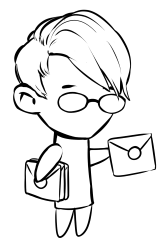 ‘It is quite obvious that the human race has made a queer mess of life on this planet. But as a people we probably harbor seeds of goodness that have lain for a long time waiting to sprout when the conditions are right. Man’s (sic) curiosity, his relentlessness, his inventiveness, his ingenuity have led him into deep trouble. We can only hope that these same traits will enable him to claw his way out.
‘It is quite obvious that the human race has made a queer mess of life on this planet. But as a people we probably harbor seeds of goodness that have lain for a long time waiting to sprout when the conditions are right. Man’s (sic) curiosity, his relentlessness, his inventiveness, his ingenuity have led him into deep trouble. We can only hope that these same traits will enable him to claw his way out.
‘Hang on to your hat. Hang on to your hope. Tomorrow is another day.’
Social justice can seem like a mirage. Hope can seem naive. But, it’s also what stands between the will to keep working for change and crippling despair. It is, I have found, surprisingly resistant to extinction.
Social Justice Is for Everyone (themes and guiding principles)
Each of the following chapters in this collation has a particular theme, spanning racism (chapter 2), gender and sexuality (chapter 3), disability and refugee policy (chapters 4 and 5), worker abuse (chapter 6), children and abuse (chapter 7), older people and aged care (chapter 8), suicide and rational suicide (chapter 9), health and mental health (chapter 10), economic injustice (chapter 11) and education (chapters 12 and 13).
The work of producing the essays was guided, more or less imperfectly, by the following principles:
- Every issue of social justice is part of the issue of social equity.
- Hierarchical power relations between social groups are the meta-issue. Social justice work is about exposing and challenging abuses, subverting and redistributing structural power.
- Social justice work celebrates diversity, respects difference, forges connections across issues and groups and amplifies marginalised voices.
- The personal is political (but not party-political).
- Social justice work is educational and awareness-raising (not destructively critical).
- Issues and policies (not personalities) are targets of critique.
- It is feasible to have a secular (non-religious) perspective.
- Social justice writing aims to be reliable, checkable and non-sensationalist.
This collation is underwritten by hope – that social justice work will continue, that many will choose to swim against the tide, that opportunities for reflection are sufficient to keep hope alive, and that hindsight can guide a better future of social justice for everyone.
Social justice work, and reading about it, frequently involves tension between immersion and self-preservation. Trusting our own best judgments is fundamental. I hope the benefits outweigh the costs, as they have over a lifetime for me.
Some essays contain material that may be confronting or disturbing. If you feel distressed by what you read, your usual supports and ways of responding are important. Contact numbers for helplines (such as Lifeline: 13 11 14 in Australia) may also be useful.
NOTE: the references in this introductory chapter are included in the book and are not reproduced here. The Chibi line drawings are the work of Arden Beckwith.
Published by Busybird Publishing, ‘Social Justice Is for Everyone … An Invitation in Essays to Join a Conversation’ is available from online retailers as a paperback (various prices from $28.60) and an eBook (Amazon charges $7.33).
It is also available free from the author, Dr Joan Beckwith, at joan.beckwith@outlook.com in return (while stocks last) for a donation to the Wurundjeri Cultural Heritage Aboriginal Council, on whose lands she lives and writes.
TO GET A FREE COPY provide postal details to joan.beckwith@outlook.com.
TO DONATE TO WURUNDJERI (if/as-you-can-afford in lieu of paying for the book) go to www.wurundjeri.com.au/support/donate/
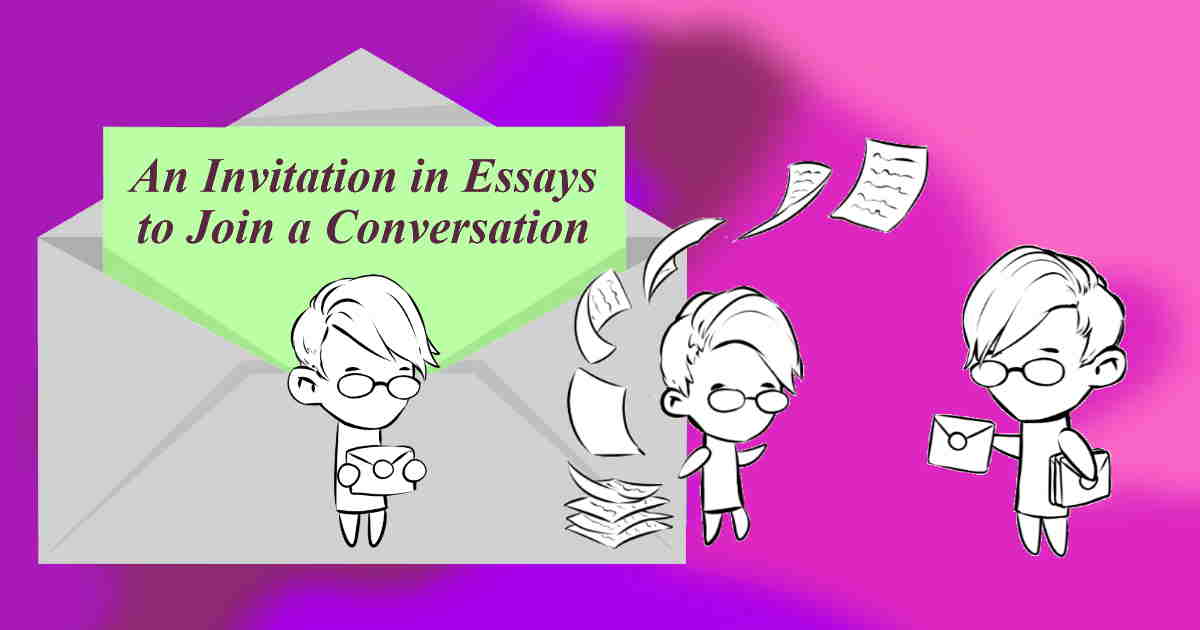
Social Justice Is for Everyone … Joan Beckwith (2021)



Understand, Mark. It is such a struggle the self absorbtion bred in our culture. I try to believe every step taken towards a fairer way does go somewhere towards good change. I was and still am sometimes an idealist.
We need idealists, I think, to imagine better ways.
Thank you for your work. My life has been a roller coaster, whilst also trying to be a force for good.
Covid has halted my latest machination. For the longest time I’ve been searching for that one unifying issue/movement. For a brief period it seemed to be the environment, however, it’s become apparent that saving the planet, only to see the same inequalities is a worthless exercise.
But! The First Nations Peoples of the world have been leading the charge ever since the charge began. Decolonisation is relevant to every issue, take some time to think about that statement.
I’ve made two attempts at starting a decolonisation council, consisting of persons from all spheres of the social justice world. I’ll try again but maybe you could do better. I’m an aloaf personality and struggle with the self absorption of others.
Have a lovely day all the same.
Cheers,
Mark ☺️
Thanks for your comments, Mark. Do I pick up the weariness that I think is possibly understood by all who try “to be a force for good”? It resonates with me, and is also part of why I think we need coalitions across causes and groups as well as ways of ‘passing the baton’.
I would be interested to learn more of your own work, and how you formulate decolonisation as core concept. You obviously haven’t given up, and maybe that’s not even a choice. So, when you do try again, keep me in the loop (via the Contact page on this website, or email joan.beckwith@outlook.com).